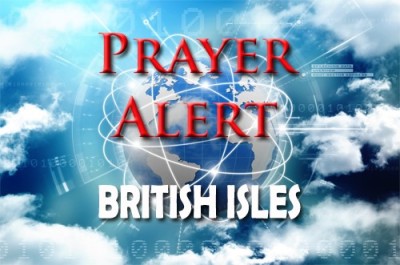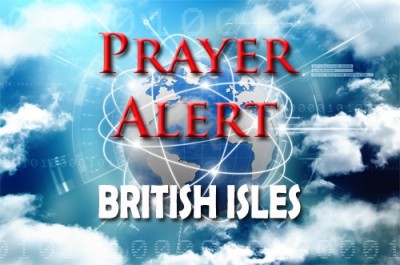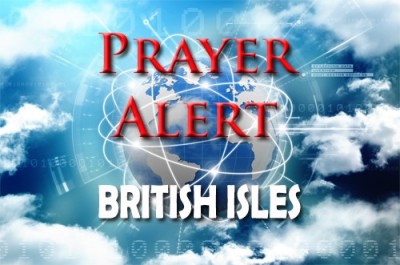Poll reflects 'quiet revival' as more young people embrace belief in God
A new YouGov survey has revealed a marked increase in young adults believing in God, signalling what many church leaders describe as a ‘quiet revival’. Among 18- to 24-year-olds, 37% now affirm belief in God—up sharply from just 16% in 2021. Although down from a January peak of 45%, the figures still indicate a significant generational shift. By comparison, belief among 25 to 49-year-olds stands at 25%, while older age groups remain steady, with around 27% of 50- to 64-year-olds and 32% of those over 65 continuing to express faith. Notably, disbelief in any spiritual power among younger adults has dropped from 19% in 2022 to 12% today. Bishop Jill Duff of Lancaster welcomed the findings, noting a clear openness to God, Christianity, and the supernatural among younger people. She described this as evidence of a growing spiritual awakening which is already being observed in churches across the nation.
Iran: ‘unimaginable joy’ for an undercover believer
Bita’s life in Iran was marked by abandonment, abuse, and despair. Raised in hardship, forced into servitude, and married at 14 to an unfaithful addict, she endured decades of rejection and loneliness. Broken and suicidal, she was rescued by a friend, then invited to a secret house church. There she first heard of Jesus’ love for the brokenhearted, and for the first time she felt truly seen. That night she surrendered her shattered life to Christ. Immediately, her children noticed a change: her burdens lifted, and joy began to replace despair. Later, at a women’s conference for persecuted believers, she testified that God had wiped away bitterness and given her 'unimaginable joy.' Though she must still worship in secret, hiding her Bible and whispering prayers, Bita’s faith is unshaken. She longs to help other women find the same freedom and healing in Jesus. Her story mirrors numerous Iranian women who, despite persecution and rejection, are discovering the beauty of Christ’s redeeming love.
More councils consider asylum hotel legal challenges
A landmark High Court ruling has opened the way for local councils to challenge the use of hotels for housing asylum seekers. The judgement came after Epping Forest District Council successfully argued that protests around a hotel in Essex, earmarked for 140 asylum seekers, had caused 'evidenced harms’ including violence and arrests. Conservative leader Kemi Badenoch hailed the ruling as a 'victory for local people’, encouraging other Tory-run councils to pursue similar action. At least four more Conservative councils are now exploring legal challenges, and two Labour-controlled authorities are reassessing their options, in light of the precedent. Reform UK has also urged its councils to follow suit. Hotel use for asylum seekers peaked during the Covid pandemic, housing over 56,000 people in 2023. Current figures show a 15% decline, with 32,345 still accommodated in March. The Government has pledged to phase out asylum hotels by 2029, pledging alternative housing through faster asylum decisions and reduced small-boat crossings.
Far-right link taints ‘patriotic’ grassroots flag movement
A grassroots campaign called 'Operation Raise the Colours' has seen activists in over a dozen English towns hoisting hundreds of Union and St George’s Cross flags on lampposts. Organisers claim the movement aims to restore national pride and community spirit, with some £13,000 raised to buy flags. However, its credibility has been damaged by links to far-right groups. Britain First donated 250 flags, and organiser Andy Saxon has publicly supported its leader Paul Golding and activist Tommy Robinson. Britain First, with roots in the BNP, is notorious for promoting 'remigration' and anti-Muslim rhetoric; its leader has criminal convictions for religiously aggravated harassment. Critics warn that what is presented as patriotism risks being hijacked by extremist groups. Councils in Birmingham and Tower Hamlets have removed flags, citing safety and political concerns, while twelve Reform UK-controlled councils have pledged not to take them down, calling removals 'shameful’. The controversy highlights how national symbols can be co-opted into culture wars, deepening division rather than fostering unity.
Students receive GCSE and BTec results
On 21 August pupils across England, Wales and Northern Ireland received GCSE, BTec and other Level 2 results. The GCSE pass rate is similar to last year, which saw a third consecutive decline after the Covid pandemic. With more 16-year-olds in the population and rising demand for sixth form places, competition is fierce. Some colleges have expanded capacity, but others warn they will have to turn students away. Concerns over possible VAT on private school fees may also drive more families toward state provision. Education secretary Bridget Phillipson praised pupils’ resilience but condemned entrenched inequalities, noting that only 19% of white British working-class children achieved strong passes in maths and English in 2024 - virtually unchanged from 2017. About 170,000 students have received BTec results and 110,000 Cambridge Nationals, while in Scotland exam pass rates have risen. For many students who began secondary school during lockdown, these results mark the culmination of years of disrupted learning, testing both their determination and the system’s ability to provide equal opportunity.
Rachel Reeves' 'mansion tax' plan
Reports suggest Chancellor Rachel Reeves may extend capital gains tax (CGT) to primary residences above a set threshold, sparking debate over a potential 'mansion tax’. Currently, homeowners pay no CGT when selling their main residence, but proposals would remove this exemption for higher-value properties. The Times estimates a £1.5m threshold could affect around 120,000 households, with bills reaching hundreds of thousands for long-term owners. Critics say it punishes older homeowners downsizing, discourages market mobility, and risks pushing wealth abroad. Many argue it unfairly double-taxes families already burdened by stamp duty. Property experts warn it could freeze the housing market, reducing sales and Treasury income. Supporters say it could help fill the £51bn fiscal shortfall while targeting wealthier households. Reeves has already cut CGT allowances in recent budgets and raised rates on shares and property. An announcement could come in the autumn Budget. Opponents argue re-banding council tax would be more effective and less disruptive.






